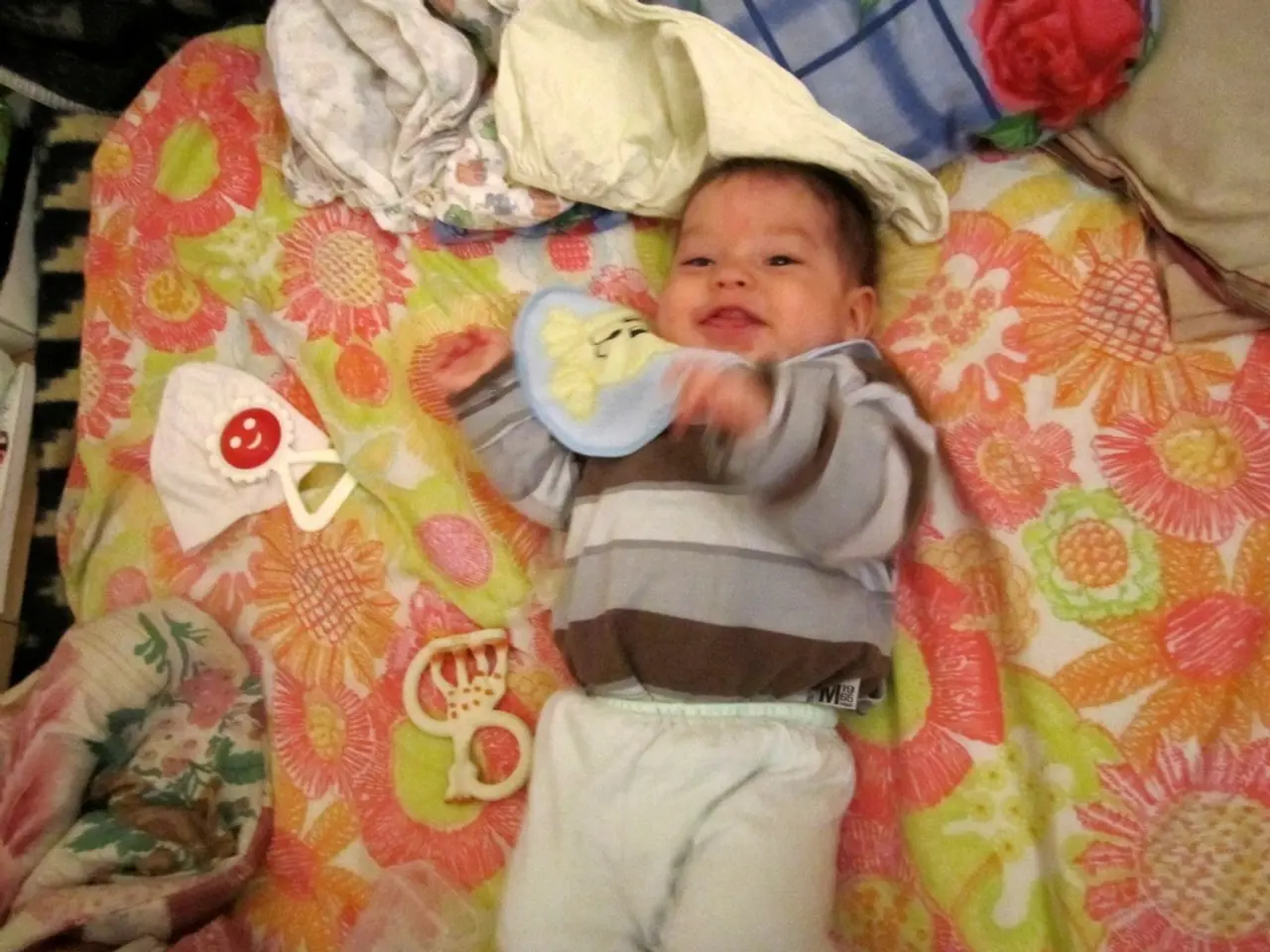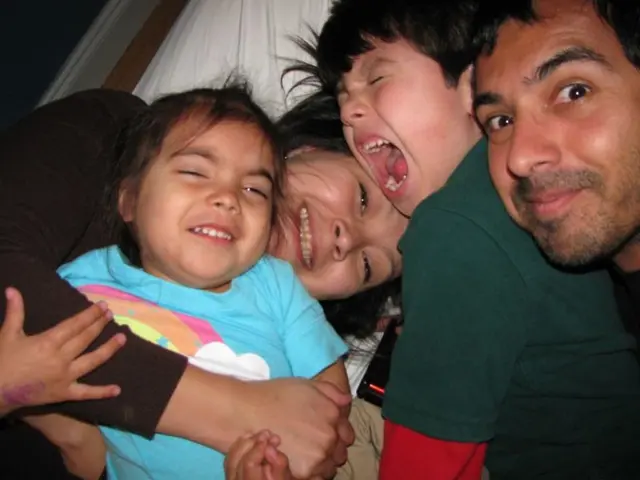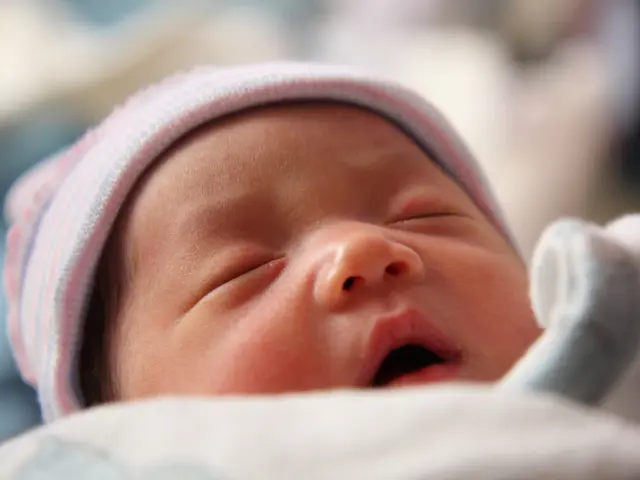Development Stages for a 7-9 Month Old Infant in Nigeria: Anticipated Milestones
In Nigeria, the journey of parenthood is a unique and enriching experience, especially during the 7-9 month stage for babies. During this period, infants display significant gains in motor skills, social-emotional responsiveness, and cognitive abilities, aligning with typical global patterns.
Babies at this stage often begin to sit without support and may start crawling or cruising along furniture. They develop advanced hand skills, such as reaching, grasping, and manipulating objects. Social behaviors like smiling, cooing, maintaining eye contact, and engaging more with caregivers and peers become more prevalent.
Recognizing and responding to their own name is another milestone that babies achieve during this period. The eruption of upper front teeth (top central incisors) is a common physical milestone around this age.
Play is crucial during this stage, with activities like tummy time to strengthen muscles, gentle dancing to music for balance and coordination, and water play for sensory stimulation recommended. Simple toys like stacking rings or blocks aid in improving hand-eye coordination and problem-solving skills. Offering a diverse range of stimulating toys and activities encourages exploration and learning.
Babies aged 7-9 months can comprehend simple commands like "wave" or "bye-bye." Their babbling becomes more elaborate, mimicking the cadence of real speech. Heightened curiosity during this period leads babies to eagerly explore their surroundings and grab, shake, and bang objects to understand their properties.
Teething becomes a focal point during these months, with the common emergence of the first tooth. Engaging in interactive play, reading books, and practicing responsive communication can stimulate social interaction and foster emotional development. A balanced diet consisting of different food groups is important for the baby's overall development.
While the basic developmental milestones for 7-9 month-old Nigerian babies are broadly consistent with international standards, their expression and timing may be modulated by cultural child-rearing customs, environmental factors, and family dynamics. For example, some Nigerian families might emphasize early social interaction and communicative play, which can promote early language and social milestones.
Traditional practices, such as carrying babies on the back or forefront or engaging babies in community gatherings, can encourage physical strength and social engagement earlier or differently than in some Western contexts. The recognition and management of sleep patterns can vary culturally, with local beliefs and family structures influencing parental responses and thus indirectly affecting aspects of infant development like self-soothing and sleep routine establishment.
Toys that produce different sounds or have varied textures stimulate sensory exploration. Parents in Nigeria can introduce traditional toys like wooden puzzles or local handcrafted toys, encouraging cultural familiarity while promoting cognitive development. Providing a secure and supportive environment is crucial to promoting the emotional well-being of babies.
It is important for parents to consult with healthcare professionals or pediatricians for any specific concerns or questions regarding their baby's growth. Embracing the unique development of their baby and enjoying the journey of parenthood are key aspects of the experience.
- Recognizing the importance of learning, parents in Nigeria encourage their babies to engage in interactive play during the 7-9 month stage, such as reading books and practicing responsive communication, to foster emotional development.
- The journey of parenthood in Nigeria highlights the significance of nutrition in a baby's health and overall development, emphasizing the importance of a balanced diet consisting of different food groups.
- Playtime serves as a vital avenue for learning, as activities like tummy time, dance, water play, and the use of simple toys promote motor skills, coordination, and problem-solving abilities in babies aged 7-9 months.
- As babies at this age show unique behavioral patterns, Nigerian families may focus on early social interaction and communicative play, which can boost early language and social milestones.
- During the 7-9 month stage, babies develop advanced hand skills, such as grasping, manipulating, and reaching objects, and their babbling becomes more elaborate, mimicking real speech.
- Providing a secure and supportive family environment is crucial for promoting the emotional well-being of the baby, as well as the development of social skills necessary for future interactions.
- Environments and family dynamics can influence the expression and timing of typical developmental milestones for Nigerian babies, with local practices such as carrying babies on the back or engaging them in community gatherings fostering physical strength and social engagement.
- While parents in Nigeria embrace the unique development of their babies during the 7-9 month stage, it is essential to consult healthcare professionals for any specific concerns or questions regarding their baby's growth, ensuring a healthy and enriching experience for both parents and children.




